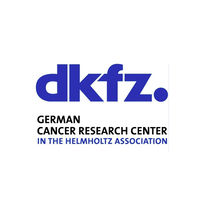AbstractBackgroundPaediatric sarcomas, including rhabdomyosarcoma, Ewing sarcoma and osteosarcoma, represent a group of malignancies that significantly contribute to cancer‐related morbidity and mortality in children and young adults. These cancers share common challenges, including high rates of metastasis, recurrence or treatment resistance, leading to a 5‐year survival rate of approximately 20% for patients with advanced disease stages. Despite the critical need, therapeutic advancements have been limited over the past three decades. The advent of chimeric antigen receptor (CAR)‐based immunotherapies offers a promising avenue for novel treatments. However, CAR‐T cells have faced significant challenges and limited success in treating solid tumours due to issues such as poor tumour infiltration, immunosuppressive tumour microenvironments and off‐target effects. In contrast, the adaptation of CAR technology for natural killer (NK) cells has demonstrated potential in both haematological and solid tumours, suggesting a new therapeutic strategy for paediatric sarcomas.MethodsThis study developed and validated a novel CAR‐NK cell therapy targeting the ephrin type‐A receptor‐2 (EphA2) antigen, which is highly expressed in various paediatric sarcomas.ResultsCAR expression was successfully detected on the surface of NK cells post‐electroporation, indicating successful transfection. Significantly, EphA2‐specific CAR‐NK cells demonstrated enhanced cytotoxic activity against several paediatric sarcoma cell lines in vitro, including those of rhabdomyosarcoma, Ewing sarcoma and osteosarcoma, compared to unmodified NK cells. Transient messenger RNA (mRNA) transfection of NK cells is a safe approach in genetic engineering, with further chemical modifications to mRNA enhancing stability of temporal EphA2‐CAR expression in NK cells, thereby promoting prolonged protein expression. Additionally, in vivo EphA2‐CAR‐NK cells showed promising anti‐cancer activity in rhabdomyosarcoma and osteosarcoma mouse models.ConclusionsThe study provides a foundational basis for the clinical evaluation of EphA2‐targeted CAR‐NK cell therapy across a spectrum of paediatric sarcomas. The enhanced anti‐tumour effects observed in vitro/vivo suggests potential for improved therapeutic outcomes in hard‐to‐cure paediatric sarcomas.Key pointsAddressing unmet clinical needs in paediatric Sarcomas. Paediatric sarcomas, including rhabdomyosarcoma, Ewing sarcoma, and osteosarcoma, exhibit poor survival rates in advanced disease stages. The lack of significant therapeutic progress over the past three decades necessitates innovative treatment approaches.Advancing immunotherapy with CAR‐NK cells. Natural killer (NK) cells modified with chimeric antigen receptors (CARs) represent a promising strategy to overcome the limitations of CAR‐T cells, particularly in solid tumours. CAR‐NK cells are associated with enhanced tumour targeting, reduced off‐target effects, and improved safety profiles.EphA2 as a therapeutic target. EphA2, a receptor overexpressed in multiple paediatric sarcomas, is identified as a viable target for CAR‐based immunotherapy due to its critical role in tumour progression and angiogenesis.Innovations in mRNA‐based engineering. This study demonstrates the feasibility of transient mRNA transfection to engineer NK cells for CAR expression, offering a non‐integrative and safer alternative to viral transduction. Enhancements in mRNA stability through chemical modifications, can further optimise protein expression.Preclinical efficacy of EphA2‐CAR NK cells. EphA2‐specific CAR‐NK cells exhibit superior cytotoxicity against sarcoma cell lines in vitro and demonstrate significant anti‐tumour activity in in vivo mouse models of rhabdomyosarcoma and osteosarcoma.Clinical translation potential. The findings establish a strong preclinical rationale for the clinical evaluation of EphA2‐targeted CAR‐NK therapy as a novel immunotherapeutic option for paediatric sarcomas.Future research directions: Combining EphA2‐CAR NK cells with immune checkpoint inhibitors or other immunomodulatory agents could further enhance therapeutic outcomes and durability. Advanced preclinical models mimicking human tumour microenvironments are needed to refine and optimise this therapeutic approach.






